Should specify in detail the autonomy content in the activities of higher education institutions.
National Assembly Deputy Bui Thi Quynh Tho (Ha Tinh) hopes that the draft Law will add an article related to university education planning, in which there should be two types of universities planned: multi-disciplinary schools and single-disciplinary schools. The delegate believes that defining the single-disciplinary university model is to orient universities to this model to train specialized majors, avoiding widespread training as it is now. Current reality shows that universities are free to open training major codes, for example, technical schools also open economic major codes or economic schools also open other major codes. Regulations on single-disciplinary universities will help focus on a specific field and promote the capacity of the teaching staff as well as the training strengths of the school.
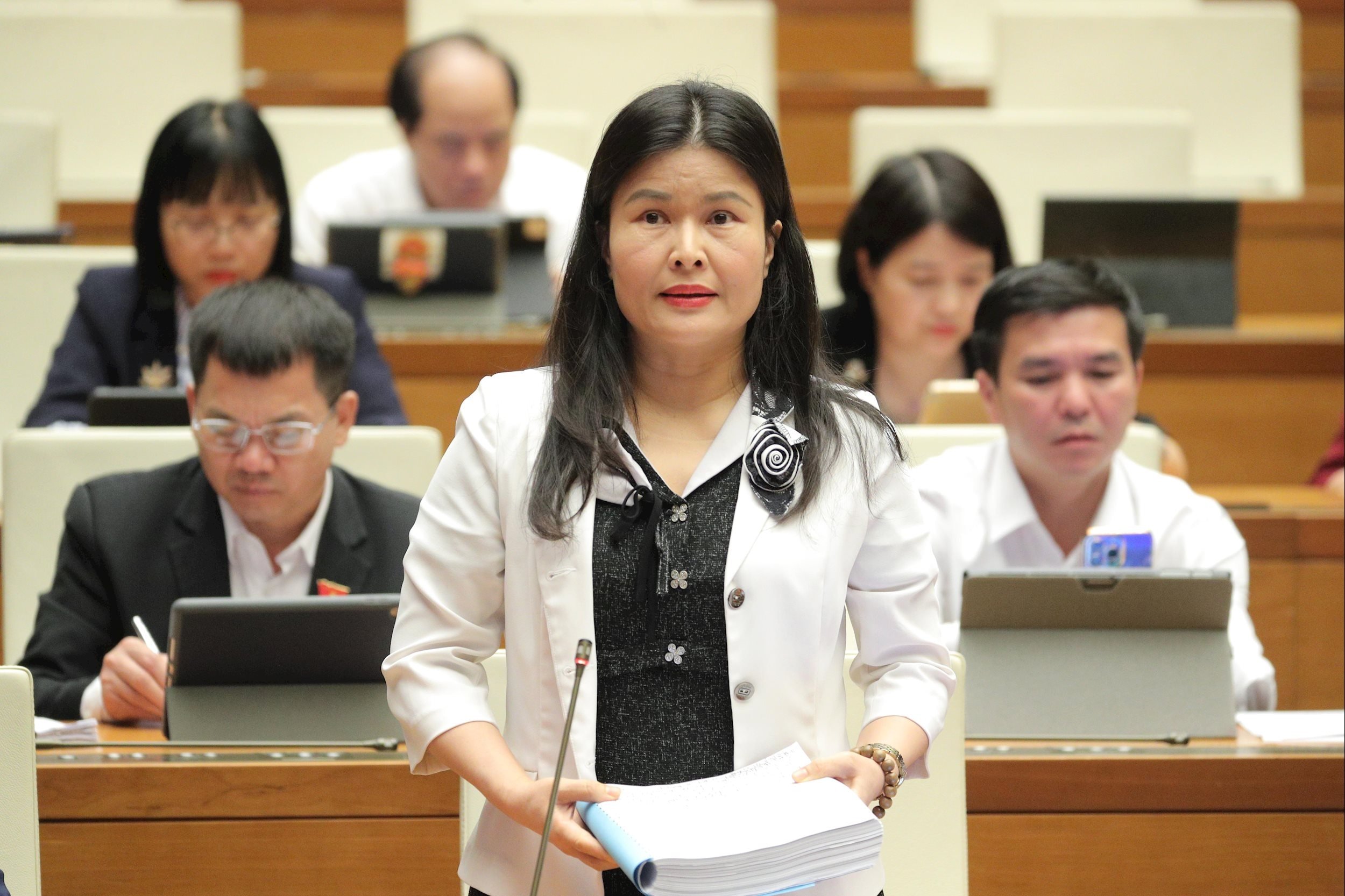
Delegate Bui Thi Quynh Tho suggested that it is necessary to clearly distinguish between public and private higher education. For the private sector, higher education institutions are considered as enterprises operating in the field of higher education and are divided into FDI and domestic private training sectors, thereby determining the State's investment policy in the education sector as well as the responsibilities and powers of the Ministry of Education and Training.
For a specific example, delegate Bui Thi Quynh Tho said that in Clause 2, Article 5 of the draft Law on State policy for developing higher education stipulates: the state budget plays a leading role, ensuring the autonomy of higher education institutions regardless of the level of financial autonomy, and has a mechanism to attract social resources for modernizing higher education. The delegate suggested that it is necessary to clarify the policy to distinguish between policies for the private and public sectors. The reason is that, "the state budget plays a leading role or ensures autonomy, it only serves mainly for public education, while for private education, the state budget may be related to orientation. Currently, the private sector is expanding higher education activities, if expressed as above, it may not be clear that the policy implication is mostly only supporting the public sector.
Delegate Bui Thi Quynh Tho also found that, in Clause 5, Article 5 of the draft Law, it is stipulated that the State guarantees all or part of the funding for public higher education institutions to meet standards, and has a mechanism to support private higher education institutions according to the provisions of law. Therefore, it is not advisable to re-regulate the State budget in Clause 2, Article 5, to avoid confusion and difficulty in implementation.
Regarding Article 6, the responsibility of state management of higher education, Point b, Clause 2 stipulates that the Ministry of Education and Training issues guidelines for training program standards. Is it reasonable for private universities, especially those with foreign investment, such as RMIT University or VinUni University? Thus, the regulation that the Ministry of Education and Training issues guidelines for issuing standards is only suitable for domestic universities, but if universities import all documents, learning materials, and training programs from abroad, it will not be suitable. Therefore, the delegate suggested that the draft Law review and clearly stipulate the legal status of universities and university groups in the law.
Regarding the removal of the provisions on autonomy and accountability of higher education institutions stipulated in Article 32 of the current Law on Higher Education, delegate Bui Thi Quynh Tho noted that the draft Law removed this content because it was already stipulated in the general provisions. However, the provisions on autonomy and accountability in Clause 2 and Clause 3, Article 3 are only an explanation of terms. According to the delegate, the provisions on autonomy in academics, personnel organization and accountability are important contents in implementing a modern and advanced education model. Therefore, it is necessary to stipulate the contents of autonomy in the activities of universities.
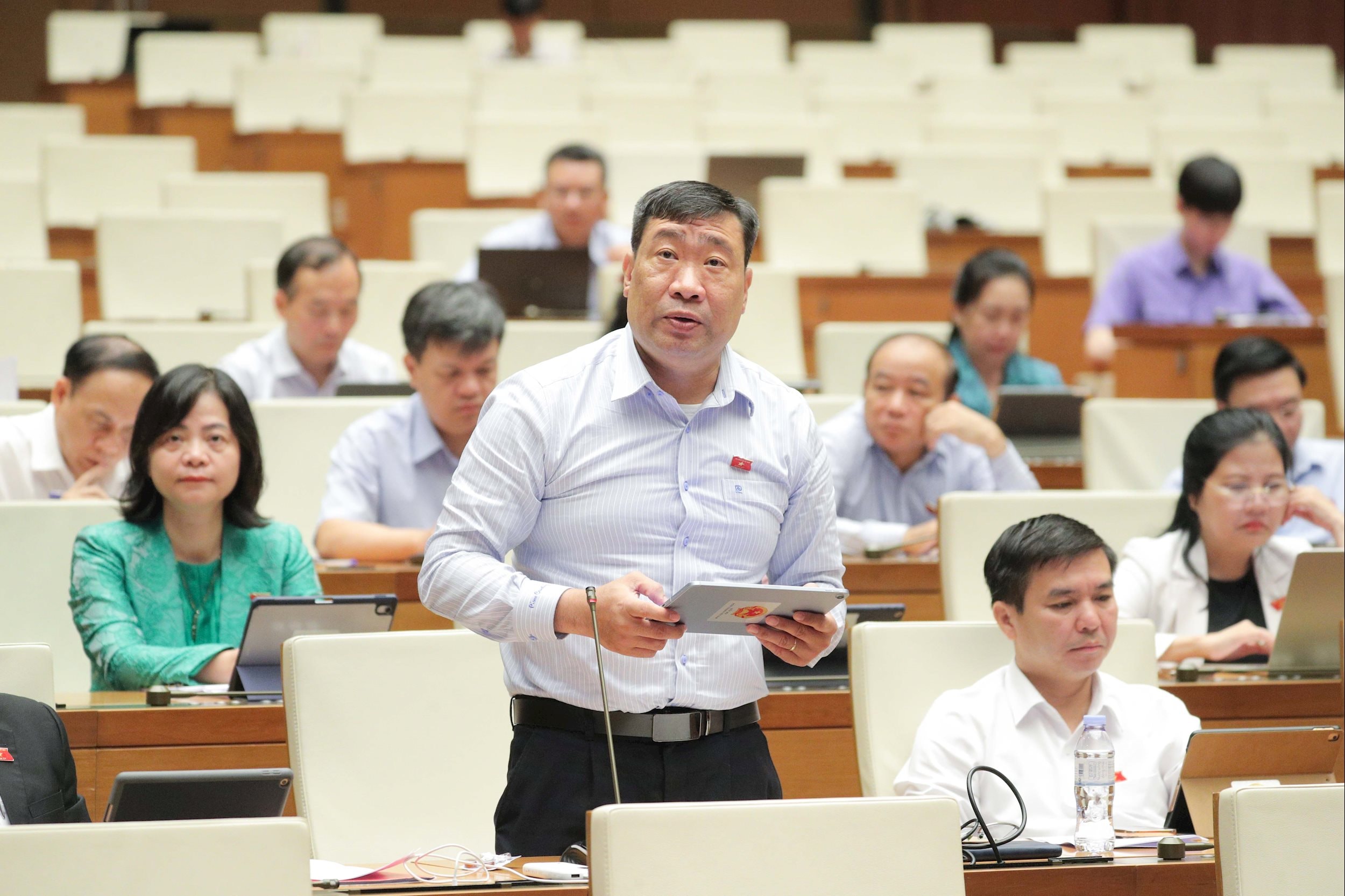
Also concerned about the regulations on university autonomy, National Assembly member Thach Phuoc Binh (Vinh Long) said that although the draft Law has affirmed that higher education institutions have the right to autonomy, it still comes with many conditions and approval procedures from the Ministry of Education and Training as well as management agencies, such as opening majors, determining enrollment targets, and approving training programs must still be considered by competent authorities. This is not in line with the spirit of comprehensive autonomy of Resolution No. 71-NQ/TW dated August 22, 2025 of the Politburo on breakthroughs in education and training development, which emphasizes university autonomy as a pillar and lever for Vietnamese higher education to make a breakthrough.
Delegate Thach Phuoc Binh emphasized that autonomy is not only financial autonomy but also comprehensive autonomy in academics, organizational structure, personnel and finance. For that reason, the delegate proposed to supplement and clearly stipulate in Article 3 or Article 7 of the draft Law the content: The State ensures the comprehensive autonomy of higher education institutions in academics, organizational structure, personnel and finance. State management agencies only conduct supervision and post-inspection on the basis of accountability.
Delegate Thach Phuoc Binh suggested studying the removal of administrative regulations on internal school operations. Instead, it would be more appropriate to establish regulations on output standards, a quality assessment system, and a public accountability mechanism.
Need for special treatment for human resource training in basic science, STEM and emerging technology
Regarding the quality of the teaching staff and scientific talents, delegate Thach Phuoc Binh emphasized that the quality of lecturers is a decisive factor in the quality of universities. Resolution No. 71-NQ/TW emphasizes the improvement of the remuneration and status of teachers. Therefore, it is necessary to add to the draft Law that the income of lecturers must be higher than the average income of society, considering this as one of the national indicators of education. The State and universities need to have a mechanism of "excellent professors' chairs" with special funding to attract international talents, overseas Vietnamese scientists, and leading scientists to work at universities.
.jpg)
Along with that, there needs to be specific policies on housing, working conditions, and research for lecturers, especially in the fields of basic science, STEM, and emerging technology, to meet the country's development needs in the spirit of Resolution No. 71-NQ/TW.
Specifically, it is necessary to stipulate that by 2035, the training scale of natural sciences, engineering, and technology will account for at least 35% of the total scale of higher education. Each national key university needs to establish at least one regional artificial intelligence (AI) research and development center, supported by the State with infrastructure, and at the same time, linked with businesses to transfer technology. There should be a scholarship mechanism and a specific funding fund for students and researchers studying STEM and AI to encourage elite, high-quality human resources for universities.
Source: https://daibieunhandan.vn/du-thao-luat-giao-duc-dai-hoc-sua-doi-tao-hanh-lang-phap-ly-vung-chac-cho-hoat-dong-dao-tao-nguon-nhan-luc-chat-luong-cao-10389161.html


![[Photo] Prime Minister Pham Minh Chinh chairs the Government's online conference with localities](https://vphoto.vietnam.vn/thumb/1200x675/vietnam/resource/IMAGE/2025/10/5/264793cfb4404c63a701d235ff43e1bd)



![[Photo] Prime Minister Pham Minh Chinh launched a peak emulation campaign to achieve achievements in celebration of the 14th National Party Congress](https://vphoto.vietnam.vn/thumb/1200x675/vietnam/resource/IMAGE/2025/10/5/8869ec5cdbc740f58fbf2ae73f065076)

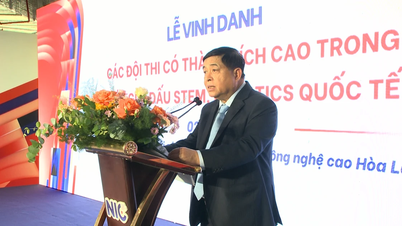





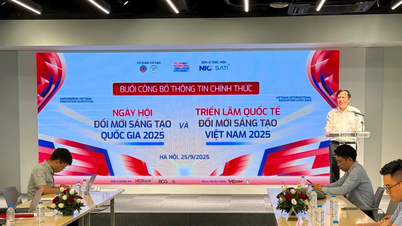





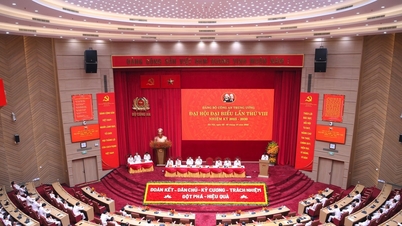
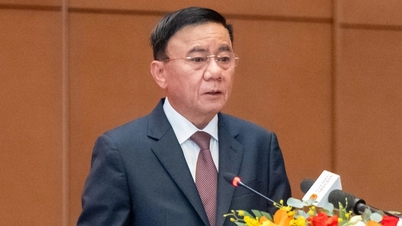

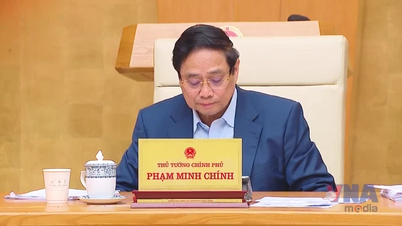

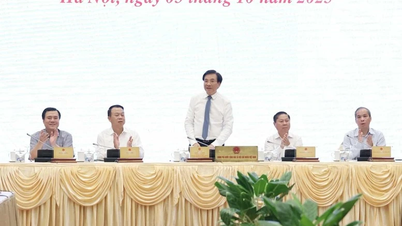

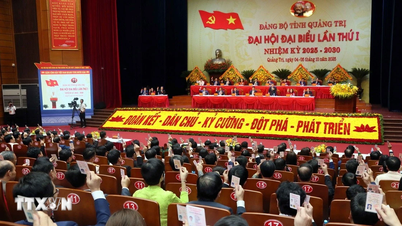
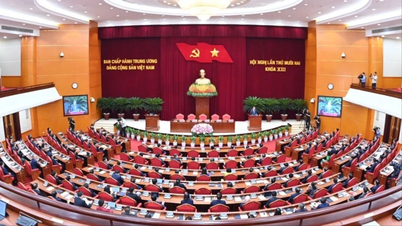




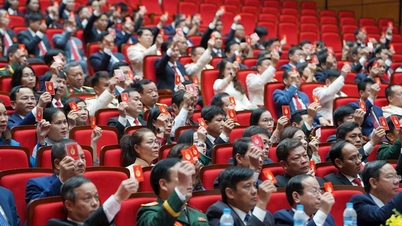
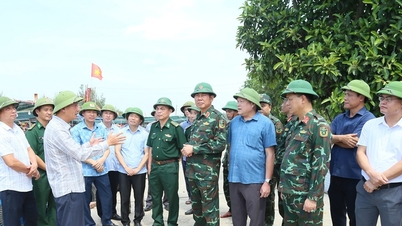
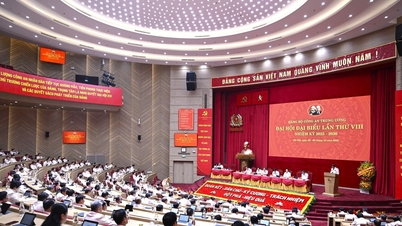
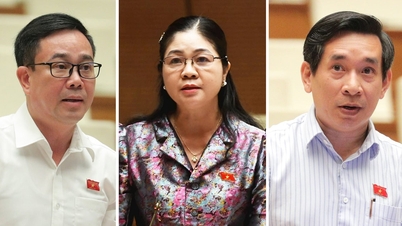
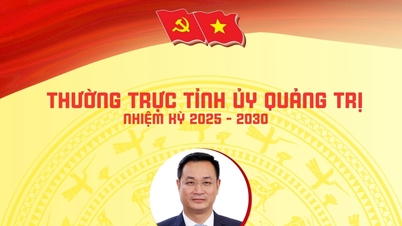
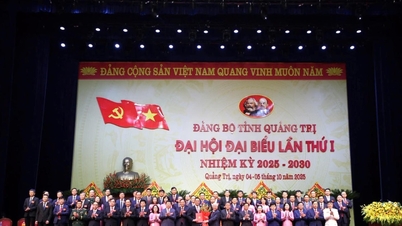























![[VIDEO] Summary of Petrovietnam's 50th Anniversary Ceremony](https://vphoto.vietnam.vn/thumb/402x226/vietnam/resource/IMAGE/2025/10/4/abe133bdb8114793a16d4fe3e5bd0f12)

![[VIDEO] GENERAL SECRETARY TO LAM AWARDS PETROVIETNAM 8 GOLDEN WORDS: "PIONEER - EXCELLENT - SUSTAINABLE - GLOBAL"](https://vphoto.vietnam.vn/thumb/402x226/vietnam/resource/IMAGE/2025/7/23/c2fdb48863e846cfa9fb8e6ea9cf44e7)














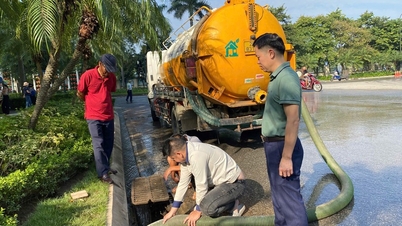


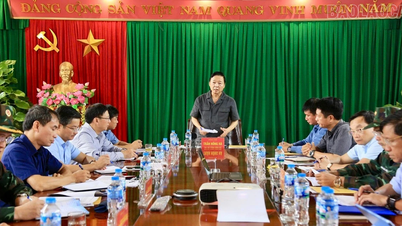



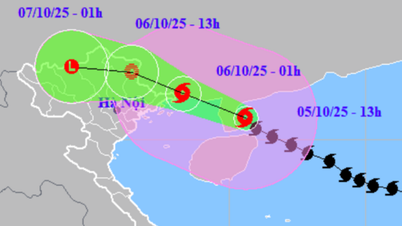














Comment (0)